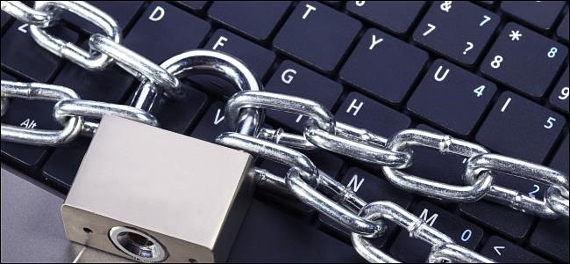
A few days ago the company Splash Data, a technology consultancy specialized in computer security, published a report showing a list of the ten most used passwords in the world. Last year the password "123456" dethroned the one who had been the queen until now "password". The rest of the most used passwords were: 12345678, qwerty, abc123, 123456789, 111111, 1234567, iloveyou, adobe123.
The reason users have for selecting these types of passwords, It is none other than being able to remember them easily. It is one thing to be able to remember them easily and another is to establish passwords so simple that anyone can figure them out without any problem.
From Vinagre Asesino we are going to guide you so that you can check if the passwords you use are secure. If they are not, we will teach you how to set a strong password.
- Uppercase, lowercase and numbers combination. When we are going to register in an online store service, mail service, or any other type of user, when entering the password, most services will inform us about the suitability of the same through bars in which According to the written password, it will reach one level or another that ensures the reliability of the password or not. Other services oblige us to establish a password that contains: uppercase, lowercase and a mandatory number. These types of passwords are the most secure. Apart from these three requirements, they also usually force us that the password must have at least eight characters, but the longer the better.
- Forget about names. Apart from the most used keys mentioned above, people as a general rule and in order to remember the password, they usually use the name of a relative of theirs or pet along with a number such as the year of birth or some commemorative date. The problem with using this type of passwords is that anyone close to us could figure it out without many complications.
- Keep her away from people. Having written down on our computer, either a post-it or in a file on the desktop of our computer is the same as saying your password to the first one who passes. Anyone who can access our computer, either physically or remotely, could access them.
- Do not repeat passwords. Although it is complicated, having a different password for each service is a problem. With how easy it is to use the same passwords for everything! Fortunately password managers allow us to manage them safely. These services guarantee that absolutely no one will have the ability to crack our passwords. There are several types of password managers, free or paid.
If after reading all this, you still don't know which password you can use, we recommend that you use an online password generator such as: Norton Identity Safe, Online Password Generator, Secure Key o Random Generator.
All these services they work in more or less the same way when generating a password: we must specify the length, if we want to add uppercase, lowercase and letters, we can also add if we want to use punctuation marks. The problem comes later when they show you a password like "qo% m67h!" to see who is the pimp who can remember her.
As few people have such a prodigious memory that these types of passwords can be stored in their heads, the best thing would be to use applications that allow us to directly manage all the passwords for the services we use. But this It limits us to only being able to access our services always from the same computer since it is the application that reminds the browser of the passwords of each website.
So the best thing will be, look for a word that is easy to remember, join some numbering to it and put a character in upper or lower case, in this way we will always have our data safe and we can access from wherever we want without having to resort to third-party applications.
More information - LastPass, a secure way to manage our passwords